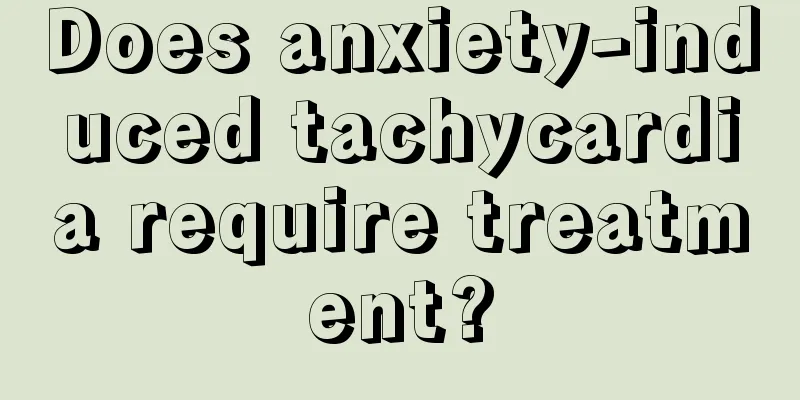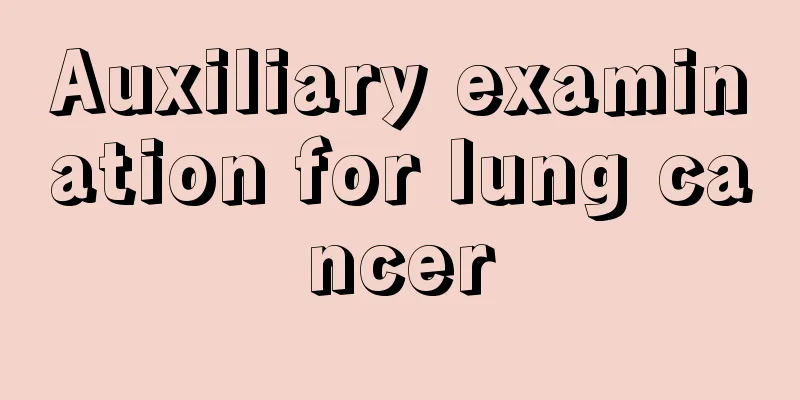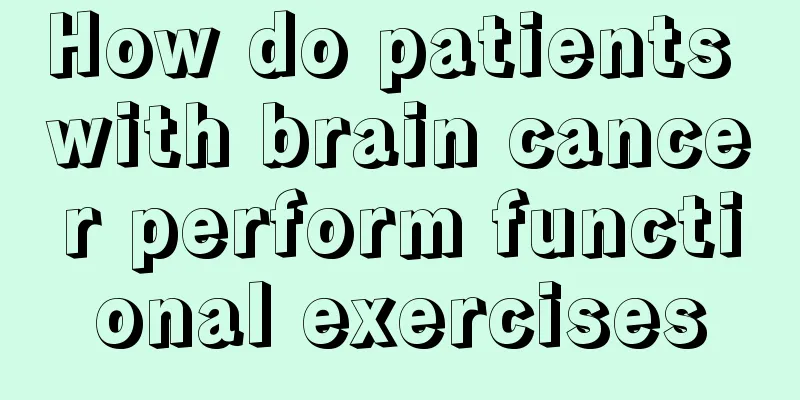Does anxiety-induced tachycardia require treatment?

|
Nowadays, people more or less have a little bit of anxiety disorder. The so-called anxiety disorder means that in life, people often become overly anxious and concerned about some things, which leads to a very serious psychological activity. Some people will become emotionally excited and cause tachycardia due to anxiety. How should these situations be solved in normal times? treat Since physiological tachycardia is less harmful than pathological tachycardia, the best treatment is to maintain a good mental state and living habits and regularly participate in moderate physical exercise. Pathological tachycardia can be divided into two types: sinus tachycardia and paroxysmal supraventricular tachycardia. [Sinus tachycardia]: The characteristic is that the heart rate speeds up and slows down gradually. Generally, the heart rate will not exceed 140 beats per minute. Most patients have no organic heart disease. Patients generally have no obvious discomfort, but sometimes have symptoms such as palpitations and shortness of breath. [Paroxysmal supraventricular tachycardia]: The heart rate can reach 160 to 200 beats per minute, characterized by sudden onset and sudden cessation. It can occur in patients with organic heart disease or in those without organic heart disease. During an attack, the patient suddenly feels panic and has a faster heart rate, which lasts for several minutes, hours or even days, and then suddenly returns to normal heart rate. During an attack, the patient will experience palpitations, chest tightness, discomfort in the precordial area, and swelling and throbbing in the head and neck. People without heart disease generally have no major impact, but when the attack lasts for a long time and the heart rate is over 200 beats per minute, the patient will experience blacking out, dizziness, fatigue, nausea and vomiting, and even sudden fainting and shock due to the drop in blood pressure. Tachycardia in patients with coronary heart disease can induce angina pectoris. If it is persistent tachycardia, it is necessary to find out the cause and treat it as soon as possible. Causes disease 1 Hyperthyroidism: may cause tachycardia, palpitations, sweating, insomnia, increased appetite, weight loss, etc.; 2. Fever and anemia; 3 Cardiovascular diseases: Pay special attention to myocarditis, etc.; 4. Autonomic dysfunction: Sinus tachycardia may also occur in diseases such as β-receptor hypersensitivity and menopausal syndrome. "treat": 1. For patients with organic diseases, treatment should be targeted at the cause; 2 For functional tachycardia, beta-blockers (such as propranolol, atenolol) and sedatives and antianxiety drugs (such as diazepam) can be used to effectively control sinus tachycardia; 3. Strengthen physical exercise and enhance heart function. Long-term persistence can enhance the autonomic regulatory ability of the autonomic nervous system and restore heart rhythm to normal. |
<<: What is your heart rate when walking fast
>>: How to preserve lipstick in summer
Recommend
What to do if blisters appear after being scalded
There are often some unexpected things happening ...
How often should a rib fracture be reviewed?
After a rib fracture, in addition to good treatme...
Is it good for children to drink soy milk
The physical development of many children is not ...
Analysis of the causes of spots on the left cheek
Under normal circumstances, human skin is smooth ...
How to quickly relieve a sprained waist
For people who lack exercise or are older, it is ...
Can metastatic nasopharyngeal carcinoma be cured?
Can metastatic nasopharyngeal carcinoma be cured?...
How can a depressed person be happy
The pressure of modern life is getting greater an...
What is the cause of right middle lobe atelectasis
If you have a long-term cough, you generally need...
How long can a person with bile duct tumor live
How long a patient with bile duct tumor can live ...
What to do with aging cervical spine
Cervical spondylosis requires patients to use exe...
Can people with the same blood type get married?
We all know that there are only a few types of bl...
How to eat Spirulina tablets to lose weight
Spirulina tablets are a kind of health care table...
Tips to make your eyelashes permanently curled
Many women want their eyelashes to be curled like...
What are the benefits of tapping the legs
Our bodies are covered with acupoints, and tappin...
What should I pay attention to in my diet after rectal cancer surgery
The occurrence of rectal cancer is mostly related...









